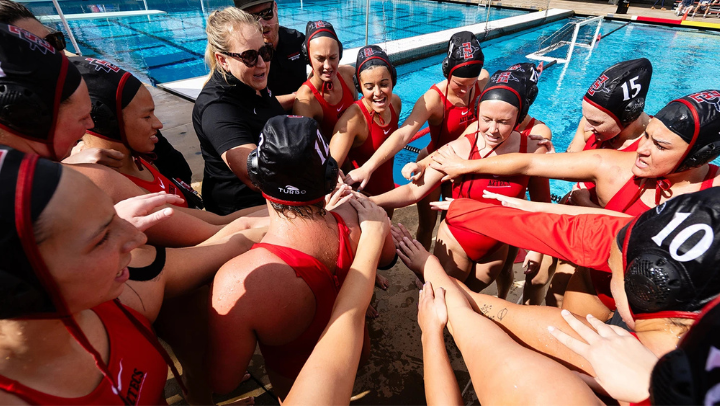Public Humanities Professor Focuses on Environmental Justice in Webzine
The new teaching tool exposes and debunks six

Thanos, the central villain in two of the highest-grossing films of all time – ‘Avengers: Infinity War’ (2018) and ‘Avengers: Endgame’ (2019) – was an ecofascist, defined as someone aligned with “environmentalism that advocates or accepts violence, and reinforces existing systems of power and inequality.”
The films suggest Thanos truly believed he was helping solve real problems and many fans felt he made some good points. But Thanos misidentifies the problem and becomes part of the problem.
“His philosophies continue to normalize the creep of ecofascism. Fascism never springs from nowhere. It creeps through our language, metaphors, visual media, narratives, and ideas of environmental health and security.” said April Anson, professor of classics and humanities at San Diego State University.
To explore the topic of ecofacism, Anson co-authored and launched a new comics-style webzine, “Against the Ecofascist Creep,” one that is written primarily for environmentalists or anyone concerned with environmental change.
“To date, this is the most powerful public humanities project I have ever been a part of,” Anson said. “After a year and a half of intense labor with four colleagues from universities across the country, and the graphic design brilliance of graduate student Melody Keenan, ‘Against the Ecofascist Creep’ has been published.”
The zine provides the reader with research and background to better understand and analyze ecofascist perspectives. Consisting of six short essays about myths that appear in our everyday lives – in movies, media and other social spaces — it poses questions for discussion, provides action steps, and gives links for further research and reading.
“Ecofascist myths can creep into actual environmentalists’ rhetoric and efforts — and doom a real chance at a just, sustainable future,” the zine authors state in the introduction. “Our goal is to work together to recognize and remove ecofascist ideas from the way we think and talk about the world.”
In terms of academics, many of the characters featured in the zine are entrenched in environmental studies issues. Anson found “a combined need to intervene and reimagine how Marvel Universe fictional characters could have responded in ways that teach the audience more complicated and efficacious environmental ethics.”
Anson said: “Mary Heglar, an environmental journalist and activist that I admire, says ‘ecofascism is climate action, but it is a response to climate change, so if we are not proposing any further action, then what are we doing?’”
Anson points out that people must take action and in doing so will become change agents.
In “Against the Ecofascist Creep,” nine action items are suggested in the tactics and strategies section. One suggestion is to organize locally and invest in mutual aid initiatives to come together to “create and foster communities of care” beginning with small-scale actions. Other tactics offer actionable steps to help curb expressions of ecofascism.
To distill the intricate concepts and research into six concise 1,000-word essays for the zine was a massive project, Anson said, “It is astonishing what you can accomplish when you’re listening to each other and when you act on the concerns of others.”
The authors worked together and included: Anson; Cassie Galentine, doctoral candidate in English at the University of Oregon; Shane Hall, assistant professor of environmental studies at Salisbury University; Alex Menrisky, assistant professor of English and affiliate faculty in American Studies at University of Connecticut; and Bruno Seraphin, doctoral candidate in sociocultural anthropology at Cornell University.
“We realized the magic of writing together,” Anson said.
With the success of the zine, (more than 1,000 downloads in the first week of release), Anson is already planning to incorporate the subject into the curriculum of her Master of Arts in Liberal Arts and Sciences (MALAS) course in spring, and, a course in environmental justice in comics is under discussion.
Funding sources: SDSU Institute of Ethics and Public Affairs; SDSU Classics and Humanities; SDSU School of Art and Design, Arzi Ozkal, director. Web hosting support from Association for the Study Literature and the Environment (ASLE).



